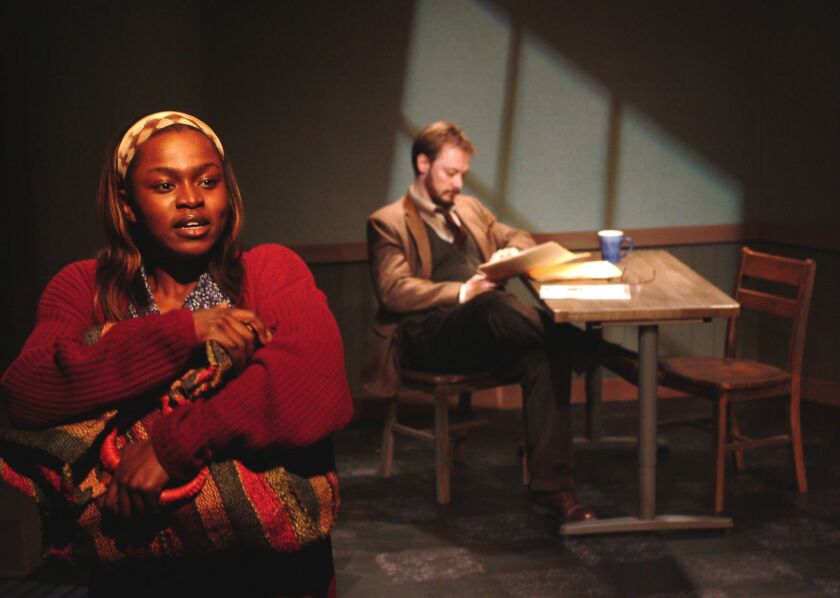Former Chicago actress Yetide Badaki is well aware of the assumptions some people have about which movie and TV roles are suitable for Black women.
Through her best-known role, she’s aiming to change that narrative.
Badaki plays Bilquis on STARZ’s “American Gods,” introduced in a memorable scene in which she swallowed a man whole — and not with her mouth. The show’s third season debuts at 7 p.m. Sunday.
“That introduction happened right at the top of the #MeToo movement,” Badaki says. “It was a powerful thing to play this character who so boldly and unapologetically owned that part of herself in a very, very powerful way. As a performer, it’s incredible to be able to dive into those assumptions and turn them on their head.”
Badaki says the over-the-top fantasy series will get into the weeds this season regarding social justice and other timely issues.
“We see that with Shadow Moon, our main character, and the way that he interacts with the world and how the world interacts with him,” she says. “There’s definitely this undercurrent of him being in a world of being ‘othered.’ ”
Badaki has chosen to speak out on what it is like to be a Black woman in the arts and about the #ENDSARS movement in protest of her native Nigeria’s Special Anti-Robbery Squad, or SARS, which has a history of police brutality toward citizens.
“I was [in Nigeria] up until I was 12,” Badaki says. “I saw many ways in which the power of the people was slowly but surely eroded. And we’re also dealing with that again now with the #ENDSARS movement. One thing that became very clear was that once your rights are taken away from you, they are so much harder to get back.”
A few months into the coronavirus pandemic, “After a few months of having isolated, I put on my mask, I got my signs, and I said: ‘Well, this is something I’m willing to stand in the line of danger for,’” Badaki says. “This is a moment where I don’t want to have to look back and say I did nothing.”
As for challenges facing Black actresses, she points to “The Fresh Prince of Bel-Air” alumna Janet Hubert, who said on a recent HBO Max reunion special that her dark complexion has held her back and that her issues with star Will Smith branded her as “difficult,” damaging her career.
“Everywhere I find that I’m moving forward, I’m trying to see how many more doors I can open up behind,” says Badaki, whose other TV credits include “Masters of Sex” and “Criminal Minds.” “Because the truth is it’s harder for women in general. It’s harder than for women of color, then it’s harder for darker skin women. I had a professor at Illinois State who told me that I would have to work at least three times as hard to be noticed. I’ve taken that to heart.”
After leaving Illinois State, where she was a theater student, Badaki moved to Ravenswood and performed at Steppenwolf Theatre and in Victory Gardens Theater’s “Wheatley,” in which she played Phillis Wheatley, America’s first published Black woman poet.
Badaki has made the road smoother for young girls who want to participate in the arts via the UBUNTU Scholarship, a yearlong scholarship offered to a Los Angeles-based woman of color.
“The way I see it is also meant to benefit my brother, it’s also meant to benefit my sister, it’s supposed to benefit all those around me — it’s not just about me,” Badaki says. “As we say in this season of ‘American Gods,’ ‘I is we’ — we are interconnected. We are only as strong as the most vulnerable within us as the pandemic has shown. It’s a concept that has African roots.
“I wanted to try and open up the pipeline some more. We got to hear some incredible stories through the application process. People dealing with the DACA situation, people that have also experienced racism, as well as colorism.”







